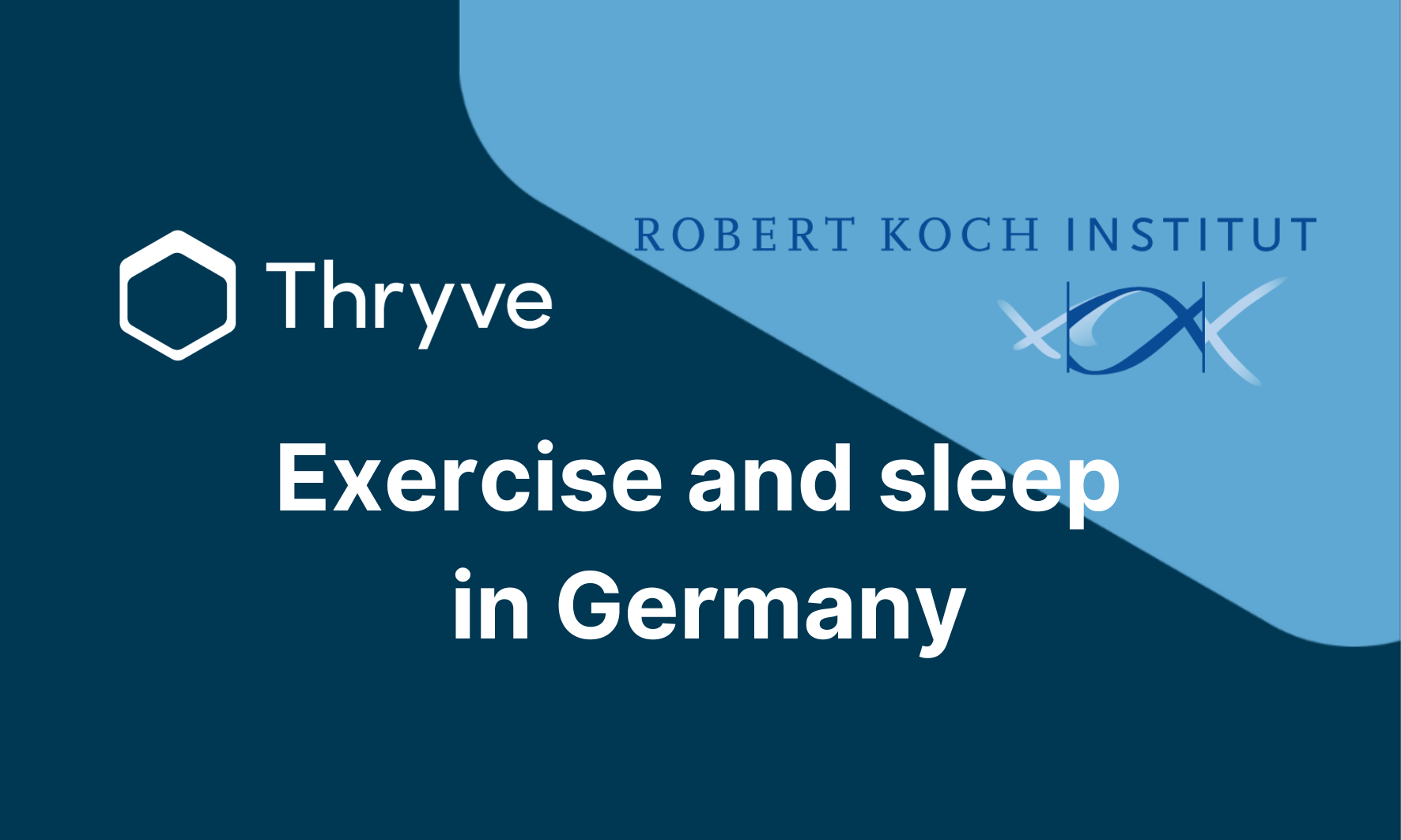
Public health decisions rely on accurate data, but what if most of that data comes from self-reported behavior? For decades, national health surveys have depended on what people say they do, not what they actually do. That’s changing.
The “Exercise and Sleep in Germany” study from the Robert Koch Institute (RKI) is one of Germany’s most advanced efforts to quantify movement and sleep behavior at the population level using wearable devices. With Thryve’s platform powering secure, large-scale data integration, this study brings objective behavioral data into the national health conversation.
The Robert Koch Institute (RKI) is Germany’s authority in public health research and disease surveillance, operating under the Federal Ministry of Health. With a history spanning over 125 years, RKI is responsible for collecting, analyzing, and interpreting health data that informs national healthcare strategies, including vaccination campaigns, chronic disease monitoring, and pandemic preparedness.
As part of its broader "Gesundheit in Deutschland aktuell (GEDA)" program, which is a recurring health survey assessing the population’s well-being, RKI initiated the "Bewegung und Schlaf in Deutschland" module to deepen its insights into daily behavior patterns. This sub-study aims to replace estimates and recollections with measurable data by using wearable sensors instead of traditional questionnaires.
Participants are monitored for indicators such as:
The data is then allocated across different demographics (age, gender, education level, region) and temporal variables (weekdays vs weekends, seasons) to uncover how behavior varies across the population and over time. The results will be instrumental in adjusting national recommendations on exercise, sleep hygiene, and lifestyle interventions aimed at disease prevention and healthy aging.
Population health policy depends on understanding how people live, but conventional survey methods can only go so far. Self-reported data is subject to bias, forgetfulness, and inconsistency. For activity and sleep in particular, respondents often overestimate or underestimate their behaviors.
Germany lacked a comprehensive, objective baseline for daily movement and rest patterns. RKI aimed to change that by introducing wearable devices into its data collection toolkit.
This required a solution that could:
RKI selected Thryve’s platform to support the full digital infrastructure for wearable data integration. The process included:
Thryve enabled:
With over 1,000 participants and growing, the study has already generated one of the most comprehensive datasets on real-world movement and sleep patterns in Germany.
Key outcomes include:
This study is more than a technical milestone, it’s a shift in how public health is measured. When national health planning is grounded in real-world data, everyone benefits. Thryve is proud to support RKI in demonstrating that wearables aren’t just for individual fitness, they’re tools for public good.
By replacing assumptions with evidence, RKI and Thryve are paving the way for smarter, more targeted health interventions across Germany.
Ready to power your next clinical study with real-world health data?
Book a demo with Thryve!